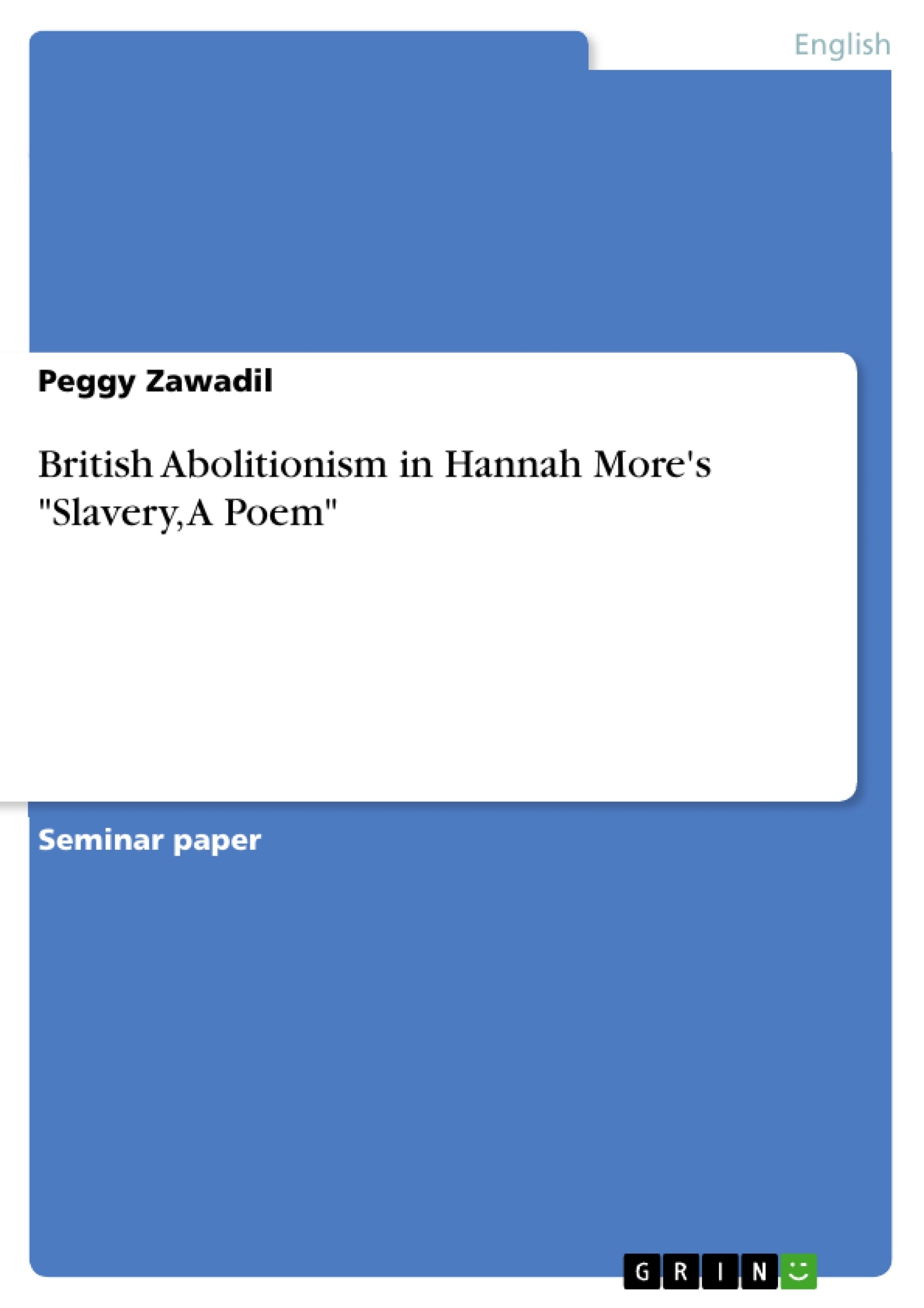In the following, the author wants to explore in what way the poem "Slavery, A Poem" by Hannah More serves abolitionist means.
A quote of Hannah More (1745 - 1833) in a letter to her sister states: “I grieve I did not set about it sooner; as it must now be done in such a hurry… but, good or bad, if it does not come out at the particular moment when the discussion comes on in Parliament, it will not be worth a straw.” (Feldman, 1997, p. 470) This statement is referring to her poem “Slavery, A Poem.” that she wrote in 1788. Reading this quotation one can act on the assumption that the poem and its time of publication served a specific purpose. Knowing that Hannah More was an active member of the British abolitionism and knowing that she wrote the poem for this very reason; we can come to the following study question: In what way is the typical British abolitionism represented in Hannah Mores poem?
Inhaltsverzeichnis (Table of Contents)
- Introduction
- Hannah More and the British Abolitionism
- “Slavery, A Poem” and the British Abolitionism
- Abolitionist arguments in the poem
- How the arguments are presented in the poem
- Conclusion
Zielsetzung und Themenschwerpunkte (Objectives and Key Themes)
This text aims to explore the representation of typical British abolitionism in Hannah More's poem "Slavery, A Poem". It investigates how the poem serves abolitionist goals, considering Hannah More's background and the context of her time, as well as the poem's own characteristics and qualities.
- The role of Hannah More in the British abolitionist movement.
- The influence of Methodist thought and feminism on abolitionism.
- The poem's connection to British abolitionism and its categorization as a political, argumentative, and abolitionist work.
- The poem's structure, rhetorical devices, and approaches.
- The impact of the poem on the development of public discourse on slavery.
Zusammenfassung der Kapitel (Chapter Summaries)
The first chapter introduces the poem "Slavery, A Poem" and its context. It highlights Hannah More's personal involvement in the abolitionist movement and the significance of her poem in the contemporary political landscape. The chapter establishes the study question: How does the poem reflect typical British abolitionism?
Chapter two focuses on Hannah More's life and her involvement in the British abolitionist movement. It analyzes her background, her engagement with the Clapham Sect and the Evangelical movement, and her evolving understanding of slavery. The chapter also explores the role of the coffee house culture in shaping public opinion and the interconnectedness of feminism and abolitionism.
Schlüsselwörter (Keywords)
This text focuses on the key themes of British abolitionism, Hannah More's life and work, the poem "Slavery, A Poem", political poetry, feminist discourse, Methodist influence, and the role of public discourse in shaping social change.
- Quote paper
- Peggy Zawadil (Author), 2012, British Abolitionism in Hannah More's "Slavery, A Poem", Munich, GRIN Verlag, https://www.grin.com/document/312204




